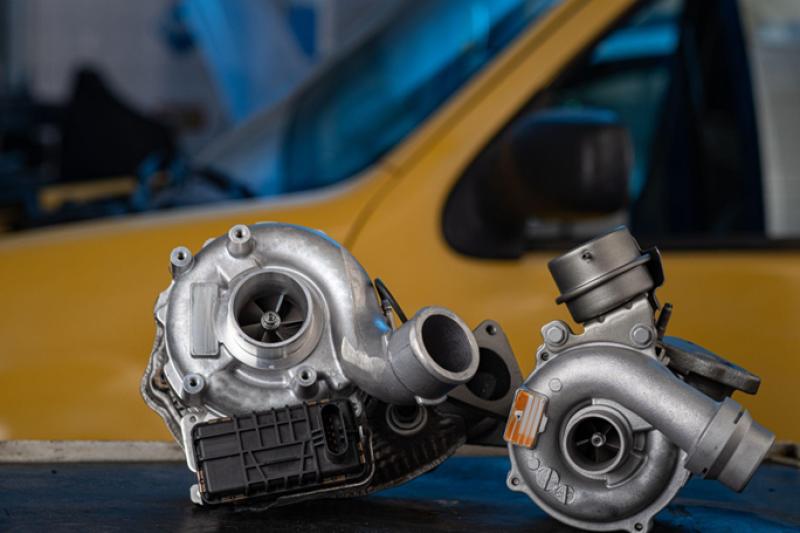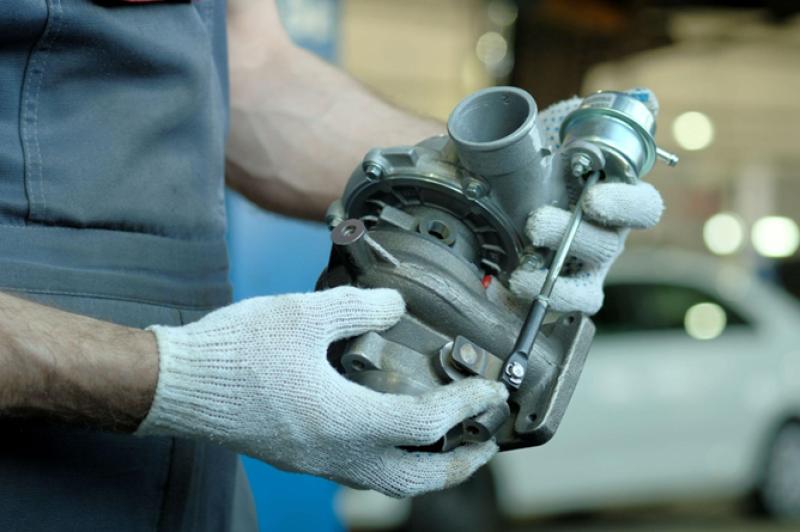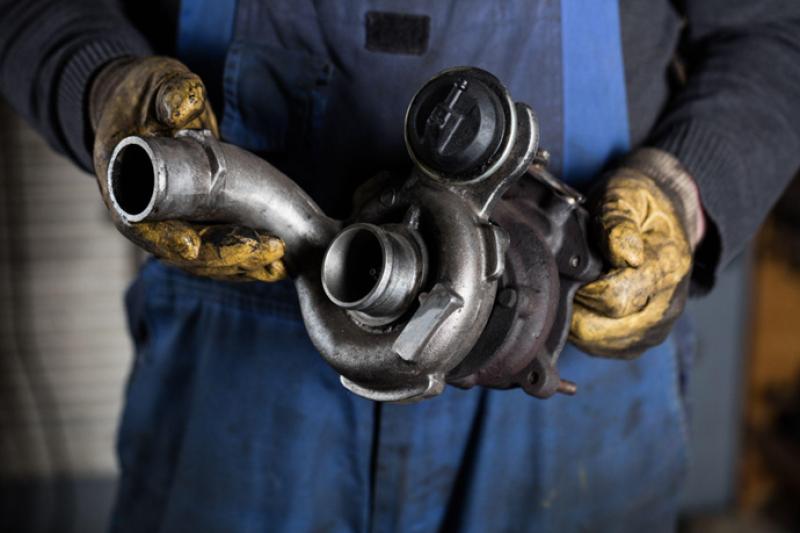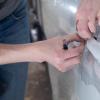3 Things Turbo Diesel Owners Need to Know

Source: Sherbak_photo/ shutterstock.com
If you’re going to drive a modern diesel truck, you should be familiar with what’s known as the turbocharger. Not all diesels have turbos but virtually all newer makes and models do. That’s because turbochargers help smaller engines produce as much power as larger ones. They provide a much-needed boost when you are accelerating to help you haul heavy loads and ramp up to faster speeds when starting from rest. But owning a diesel turbo engine comes with a lot of responsibility. A faulty turbo can lead to poor fuel efficiency and damage other components of your engine, forcing you to replace your diesel parts. Keep these tips in mind to protect your vehicle from long-term wear and tear.
What Is a Turbo Diesel Engine?
A turbo on a diesel is essentially a large air turbine that pumps more exhaust gas into the combustion chamber. All diesels require a precise mix of highly compressed air and fuel to generate mechanical energy. Increasing the amount of exhaust gas in the combustion chamber increases the amount of fuel that’s being burned so the engine can deliver more power. That’s the boost you feel when you tap the accelerator on a diesel.
The exhaust gas powers the turbine inside the turbo, which then speeds up the airflow. It requires large amounts of oil for lubrication, which keeps the air flowing at the optimal speed. Turbos can be manual, automatic, or some combination of the two. They can also come with fixed or variable geometry. A fixed geometry turbo has specific dimensions, so the same amount of exhaust gets pushed into the combustion chamber, while variable geometry turbos adjust the width of the air passageways to throttle the amount of gas going into the chamber. The good news is that the turbo on your engine should last the entire lifespan of the vehicle, or 150,000 miles, whichever comes first. Heavy towing and frequent acceleration will wear out the turbo faster than normal, so consider replacing your turbo before the 150,000-mile interval.

Palitsyn Evgenii/ shutterstock.com
Tips for Owning a Turbo Diesel Engine:
Maintain a Strict Oil Change Schedule
Turbos need oil for lubrication to keep the turbine spinning and the air flowing. Your diesel engine will consume more oil than usual when the turbo is engaged, so be sure to change out your oil regularly. If the turbo runs out of oil, it will begin to starve. The internal parts will begin to grind together until the turbo eventually breaks down altogether. The oil in your system will collect particulate matter over time that can clog various passageways in the turbo, limiting the amount of exhaust that can pass through.
Use high-quality diesel engine oil and be ready to change your oil as needed. Soot, carbon, and other particulate matter can cause the turbo actuator to fail as well, which is responsible for directing the exhaust gas away from the turbine wheel to maintain the right balance of fuel and air. Find replacement turbo actuators to improve turbo performance when the housing fills with debris.
Keep an Eye on Fuel Efficiency
Having a turbo-charged engine can increase fuel efficiency by up to 20 percent, but that’s not the whole story. A poorly maintained turbo can wreak havoc on fuel efficiency. It determines the amount of exhaust gas going into the chamber, which directly affects the amount of fuel being consumed. If the turbo has a leak or is clogged, the engine will continue to burn excess fuel without delivering a boost. You may notice a sudden loss of power or a delay in acceleration when the turbo can’t do its job properly. Be sure to monitor how much fuel you’re consuming with the turbo engaged to see if there’s a problem under the hood.

Lekavicius/ shutterstock.com
Do Your Research When Buying a Turbo
Not all turbos are created equal. Experts say automakers with a lot of experience making turbos tend to make quality parts that will serve you well on the road, but newer, less experienced manufacturers might not be able to meet your needs. Turbos are extremely complicated pieces of machinery, so do your research to make sure your replacement part is a good investment.
If you are replacing your turbo, a bad install can lead to leaks between the turbo and turbo housing. A new turbo may not be enough to solve the problem if the parts connected to the turbo are damaged as well. You may need to replace your turbo hoses and other attachments to keep the exhaust gas contained.
Having a turbo-charged engine can be a blessing and a curse if you fail to maintain it. It is responsible for controlling the amount of exhaust gas in the engine, which affects the amount of fuel that’s being burned. If the turbo is working properly, your engine should be able to accelerate quickly even when hauling heavy loads, but a bad turbo can lead to expensive rebuilds and poor fuel efficiency. Keep these tips in mind to protect what you have.
More to Read:
Previous Posts:



